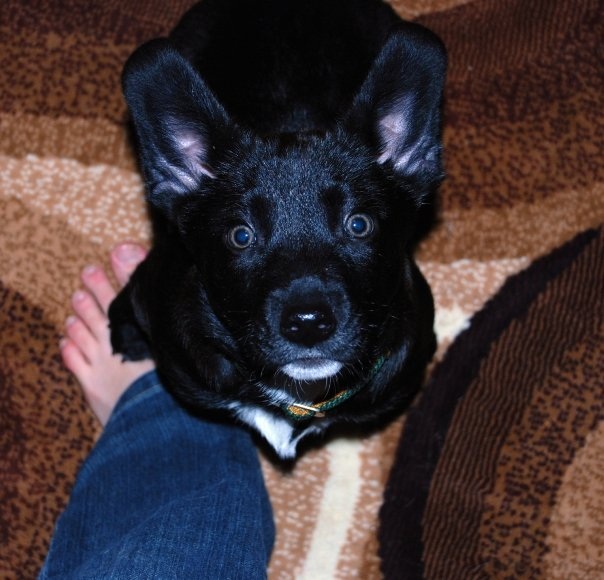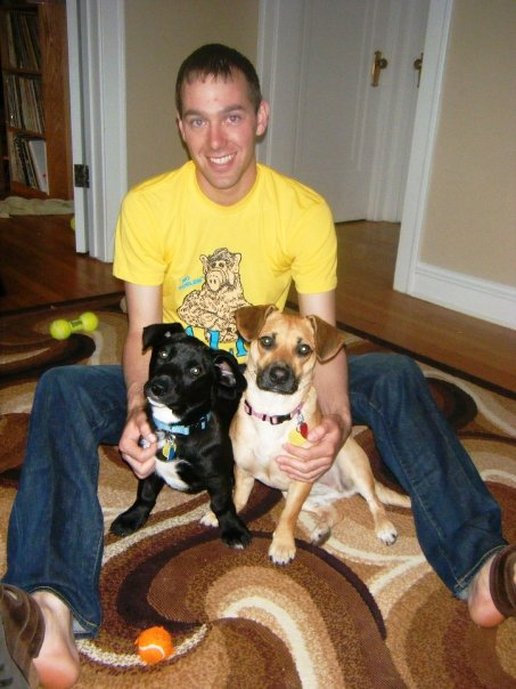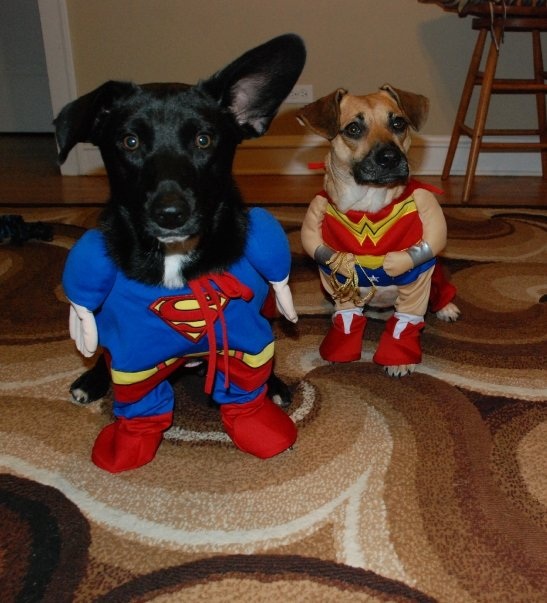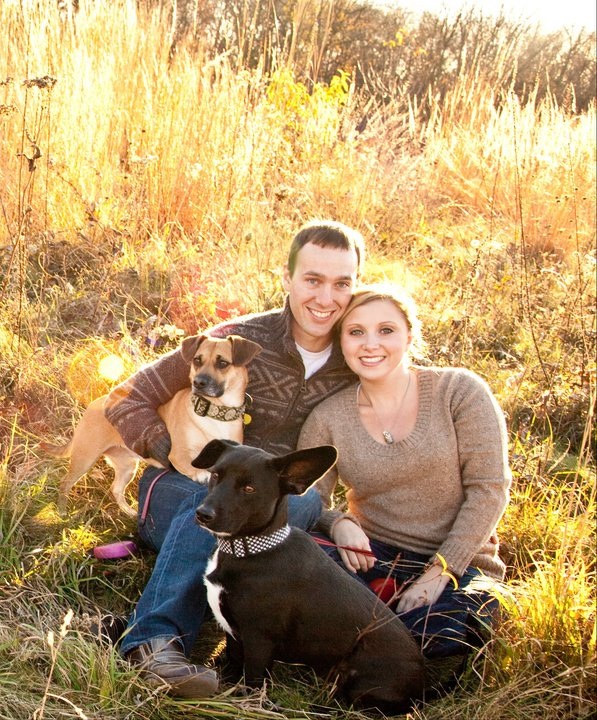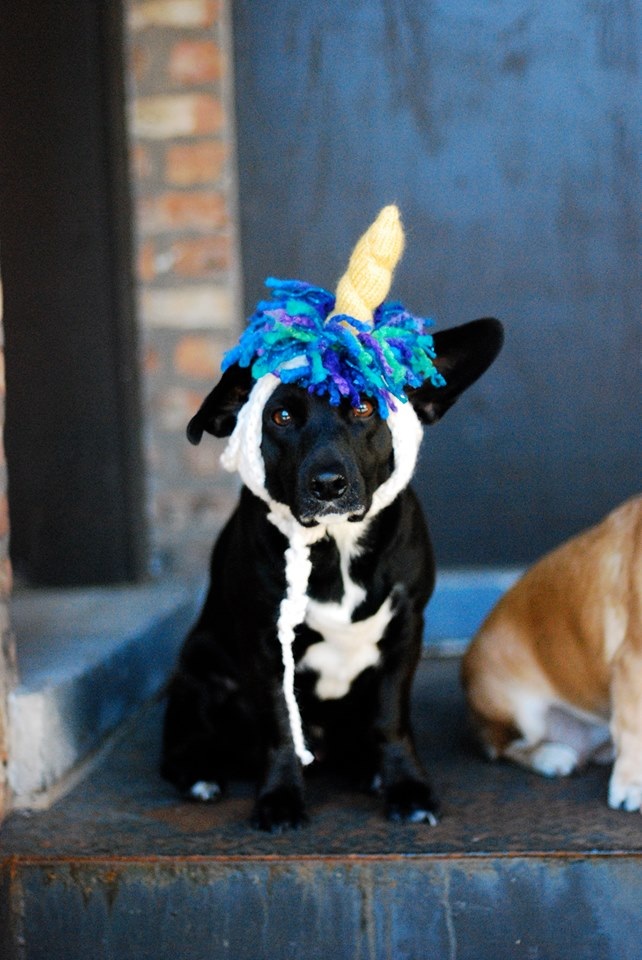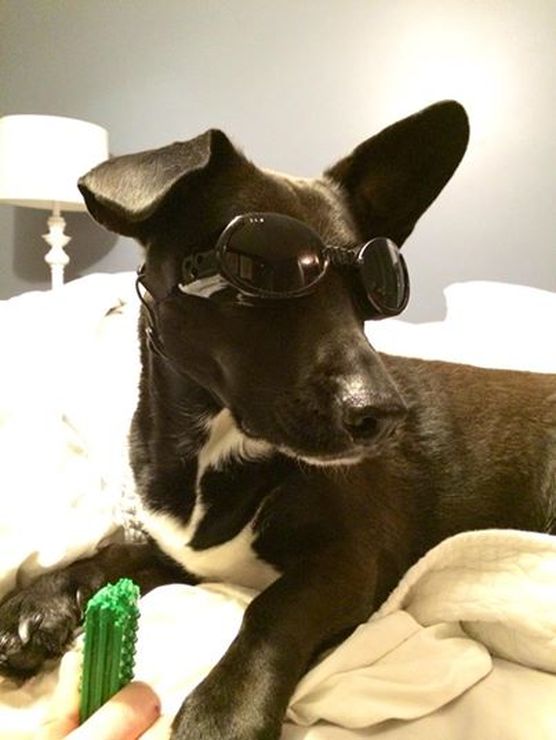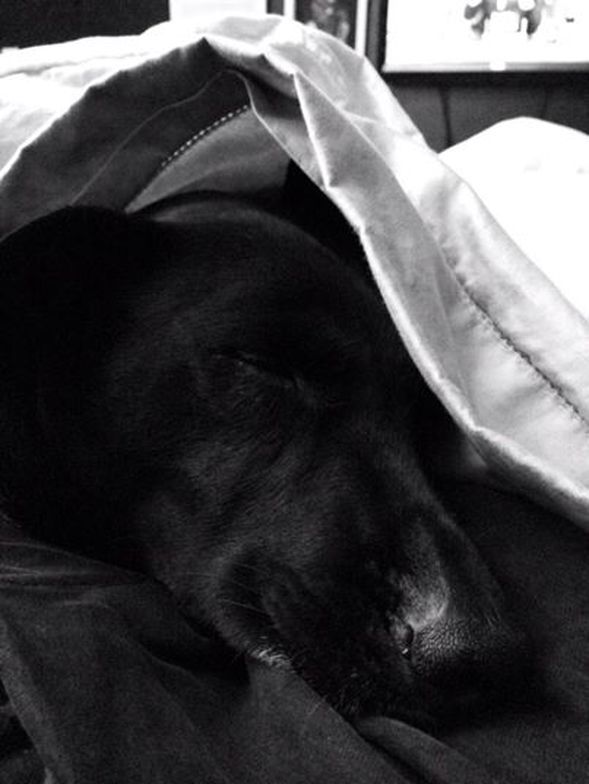|
We adopted Danger when he was a puppy. We couldn't resist him. Mike, Dulce and I went to "just look" at him,and he came home with us that same afternoon. It was love at first sight. He wasn't so sure about us in the beginning. He was unpredictable and a bit surly. He most definitely has a strong insubordinate streak. But, in time, he accepted us as his pack. We don't have any human children, but our dogs are our babies, and the four of us are very strongly bonded. We're inseparable. Over the years, Danger has appeared to be the picture of health. He has always passed every test at his annual vet exams and he has never complained or shown signs of illness- which, in part, is why we are so devastated to learn that Danger has glaucoma. Glaucoma is caused when there is an increase in pressure within the eye due to an impairment of aqueous humor outflow. In dogs, the effects of glaucoma are far more immediate and severe than they are in humans. Often, by the time the condition is discovered, irreversible vision loss has occurred. Glaucoma is very painful. The buildup of pressure inside the eye causes persistent migraine-like symptoms which do no dissipate. In dogs, Glaucoma is a MEDICAL EMERGENCY that requires immediate attention. We had never been told about the warning signs of glaucoma or any related diseases of the eye. We didn't notice the subtle changes that had started to happen. We didn't know to take him to the vet until my sister-in-law, who has had previous experience with a glautomatous dog, mentioned to us that she thought we should have Danger's eyes looked at. He had large pupils, and when the light hit his eyes, you could see a haze covering the surface of his eyeball. Danger's ophthalmologist has diagnosed him with primary glaucoma, a congenital condition. She explained that Danger has probably had abnormal pressure in his eyes since he was born. And, because it was left untreated for the last five years, it has progressed. In what seems like a flash Danger went from having fully functional sight to having lost complete vision in his left eye and a high percentage of the vision in his right eye. It is a terrible feeling to know there is nothing we can do to reverse the damage that has been done, and we can never take back the pain that he shouldered while this disease progressed. Please, please, if you have a pet who you hold dear to your heart, learn from Danger. Be better than us. If we had known then what we know now, we likely could have treated Danger's glaucoma years ago and delayed the onset of vision loss. Most certainly, we could have spared him suffering. Please educate yourself. Please seek immediate attention for your furry friends if your companion starts to exhibit any signs including:
These symptoms may not be overtly obvious. So keep watch for anything unusual. Your furry friends cannot tell you when something is wrong, and they are counting on you to care for and do what's best for them. More information can be found online or by talking to your veterinarian. If you have any concern your pet may have glaucoma, ask your veterinarian to perform tests with a tonometer. This test should be readily available at your clinicians office and it is not invasive or expensive. We have a lot of emotions about our experience with Danger's diagnostic process. We are angry that we didn't know better. We are sad that he has suffered a huge loss. We are heartbroken that we didn't stop the pain sooner. But, we are also hopeful that veterinary medicine will continue to progress toward reversing the damage this disease causes. We are happy to see him more relaxed and comfortable now that we have started managing his symptoms with medication. We are confident that Danger will learn to adjust and continue to be the happy and lovable pup we've come to adore. And I am certain that our bond will continue to grow as we work through this new challenge.
17 Comments
3/6/2014 11:09:19 pm
So sorry about Danger. It seems like your vet should have caught it, though, with his routine exams. All three of our Border Collies (ages 11-15) have cataracts. Not nearly as severe as glaucoma, but it impairs them. Especially paired with the oldest two who are nearly deaf. Hoping that Danger starts to feel better!
Reply
Thank you, Danger seems to be feeling MUCH better. These events are still recent, and we're noticing more recovery and rebound each day. It's hard not to be angry with his vet for not catching this, but we can't hold her any more responsible than we do ourselves. We just hope somebody might read this and know better before it's too late to do more for their pet(s). It's comforting to know other people have pets who are getting on well with disabilities. He's got a lot of years ahead and we want them to be good ones!
Reply
Chris
3/7/2014 01:19:48 am
So sorry to hear of Danger's medical issues. With two well loved pups in our house, I can imagine your sorrow. I will be watching my pups and talking to the vet to ensure we don't see the same issue here. Just continue to love him, he holds no emotions towards you for this, so don't beat yourself up over it.
Reply
3/7/2014 04:58:30 am
I'm so sorry for all ya'll! I'm glad he is at least starting to feel better. Thanks for sharing what I know was a painful thing for you to help others!
Reply
We're never going to let ourselves live this down. Sharing our experience is the best way we can feel like we're doing right. Danger is feeling a lot better already. He shocked us last night and was running figure eights around the bushes in the back yard. We have no idea how he was able to navigate them, but he did. It's a good sign for things to come.
Reply
Sarah C.
3/7/2014 06:15:24 am
I am so sorry to learn that your family is hurting. I think it is wonderful that you are spreading the word about a health issue that can affect so many animals, and hooray for Danger feeling so much better!
Reply
THANK YOU! Macy's story is exactly the sort of story we need. Like you did with Macy, I have been spending a lot of time thinking about Danger's condition from my own point of view. All we want is for him to be happy! We are already starting to notice that he is beginning to resume activity now that his pressure is under control. Last night, he was running around the yard playing with his sister. It was really nice to see.
Reply
Sarah C.
3/8/2014 06:50:47 am
Running around with his sister? Wonderful! Dogs can be so resilient, and I am constantly amazed by their ability to handle life with such grace.
Sarah C.
3/8/2014 06:50:56 am
Running around with his sister? Wonderful! Dogs can be so resilient, and I am constantly amazed by their ability to handle life with such grace.
Sarah C.
3/8/2014 07:08:28 am
[APOLOGIES FOR HAVING TOO MUCH TO SAY! EEP!]
Reply
Sarah, SO much of this applies to Danger! We had a good weekend at home watching him and the way he handles different situations. He's likely more annoyed by us and our attempts at figuring things out than he is by his blindness.
Reply
Michelle, I'm so sorry to hear about Danger having Glaucoma! It really is hard to tell when pets are experiencing pain or any sort of trouble. I had a kitty who we had to put to sleep at the age of 4 because he got sick with an unknown disease and his lungs filled with fluid. The vet said he wouldn't recover, so we made the choice to put him down. I was upset and asked the vet if he might have survived if I had noticed he was having problems and brought him in any earlier. She said it was hard to say, but I shouldn't beat myself up about it because animals make it hard for us to tell that they're having problems sometimes. Their instinct is to not show weakness to predators, so they'll adapt and find ways to continue on as normal rather than find a way to communicate that they're in pain. It sounds like you guys are lucky to have caught it when you did, even though it's not nearly as soon as we all would have liked. I'm glad Danger is getting the care that he needs. I totally understand what it's like when your pets are your babies, and I hate to think of any pets and their families suffering! Here's to continued improvement for Danger!
Reply
Gina, I'm so sorry to hear about your kitty. Thank you for sharing your story. Your vet is right. It's not fair that we beat ourselves up, but it's so hard not to. Animals are so clever and able to adapt. While we were out on a walk over the weekend, Danger attempted to run across the street after a squirrel. Knowing what we do, there is no way he could have seen that squirrel. The only explanation we could think of is that he used a combination of his hearing and smell to know it was there. It was eye opening for us and made us wonder how long he has been hiding his vision loss. We are very lucky that we were able to have Danger's problem treated with medication and didn't lose him to this disease.
Reply
3/10/2014 07:56:23 am
Oh no!! I'm so sorry to hear of your wee bub's vision loss and pain. Our cat Monty had a urinary blockage about 2 years ago that could have resulted in his death. It was only when he got to the point of yowling and panting that we realised something was very wrong. We took him straight to the vet and he was operated on a hour later, any later and his kidneys would have failed due to the build up.
Reply
Leave a Reply. |
Archives
March 2017
|
